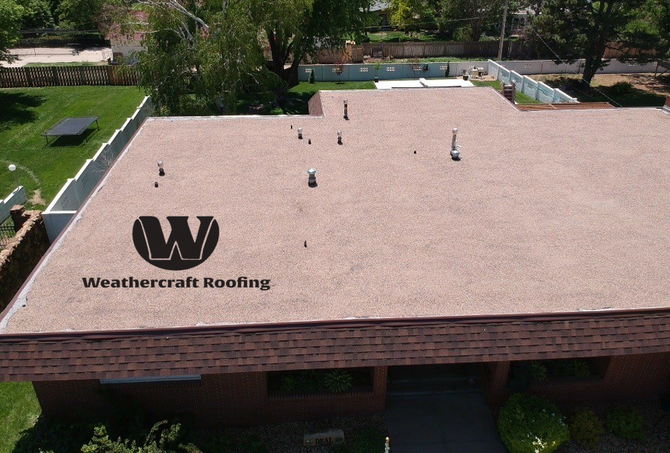When choosing a roof for your property, two of the most popular options are metal roofs and asphalt shingles. Both materials have their unique benefits, but how do they compare in terms of durability, cost, aesthetics, and climate? This article will break down the key differences between metal and shingle roofs, helping you make an informed decision on which one is best for your home or business.
Metal Roofs vs. Shingles: Durability Comparison
Durability is an important factor to consider when choosing between metal and shingle roofs. Let’s look at how each material compares:
- Metal Roofs: A metal roof can last over 50 years, offering resistance to harsh weather conditions, such as heavy snow, hail, and high winds, without warping or cracking.
- Shingles: Asphalt shingles have a typical lifespan of 20 to 30 years, but they are more vulnerable to damage from extreme weather like hail, intense heat, and high winds.
If long-term durability is your primary concern, metal roofs have the advantage due to their longevity and superior resistance to harsh weather conditions.
Cost Breakdown: Metal Roofs vs. Shingles
While metal roofs provide better longevity and performance, they often come with a higher initial cost compared to asphalt shingles. Here’s a detailed cost comparison:
- Metal Roofs: Metal roof installation typically ranges from $7 to $12 per square foot, depending on material and complexity. While the initial cost is higher, the reduced maintenance and repair needs can provide long-term savings.
- Shingles: Asphalt shingles are generally more affordable to install, with costs ranging from $3 to $5 per square foot. However, shingles may require more frequent repairs and eventual replacement, adding to the overall cost over time.
In terms of initial investment, asphalt shingles win, but the cost of repairs and replacements for shingles may add up, making metal roofs a better investment in the long run.
Aesthetic Appeal: Metal Roofs vs. Asphalt Shingles
Both metal roofs and shingles offer a variety of styles and colors, but there are some key differences in terms of aesthetic appeal:
- Metal Roofs: Metal roofs offer a variety of colors and finishes, such as standing seam and corrugated panels, ideal for modern and industrial-style properties.
- Shingles: Shingles are more versatile for traditional home designs and come in a wide range of textures, shapes, and colors. They are commonly used in suburban or residential homes for a classic aesthetic.
For homeowners seeking a more modern or industrial look, metal roofs may be the better choice, while shingles are better suited for traditional and residential aesthetics.
How Do Metal and Shingles Perform in Different Climates?
The climate in your area plays a significant role in determining the best roofing material for your property:
- Metal Roofs: Metal roofs are highly reflective, which helps reduce cooling costs in hot climates. They also perform well in areas with heavy snow, as snow slides off the surface easily. Metal roofs are resistant to rust and corrosion, making them ideal for coastal areas with salty air.
- Shingles: While asphalt shingles are effective in moderate climates, they may not perform as well in extreme conditions. They can be damaged by hail, intense heat, and high winds, and they tend to absorb heat, which can increase cooling costs in hotter climates.
For regions with extreme weather conditions, metal roofs offer superior protection, while shingles are best for more temperate climates.
Wrapping Up: Which Roof Option is Best for You?
Choosing between metal and shingles comes down to your specific needs, including climate, aesthetics, and budget. Metal roofs are a great long-term investment in extreme climates, while shingles provide an affordable, classic option.
Consult with a roofing professional to make sure you select the best roof for your home or business based on your climate and aesthetic preferences.
#MetalRoofsVsShingles #BestRoofingMaterials #RoofingComparison #MetalRoofing #ShingleRoofing #RoofInstallation #HomeImprovement #BusinessRoofing
